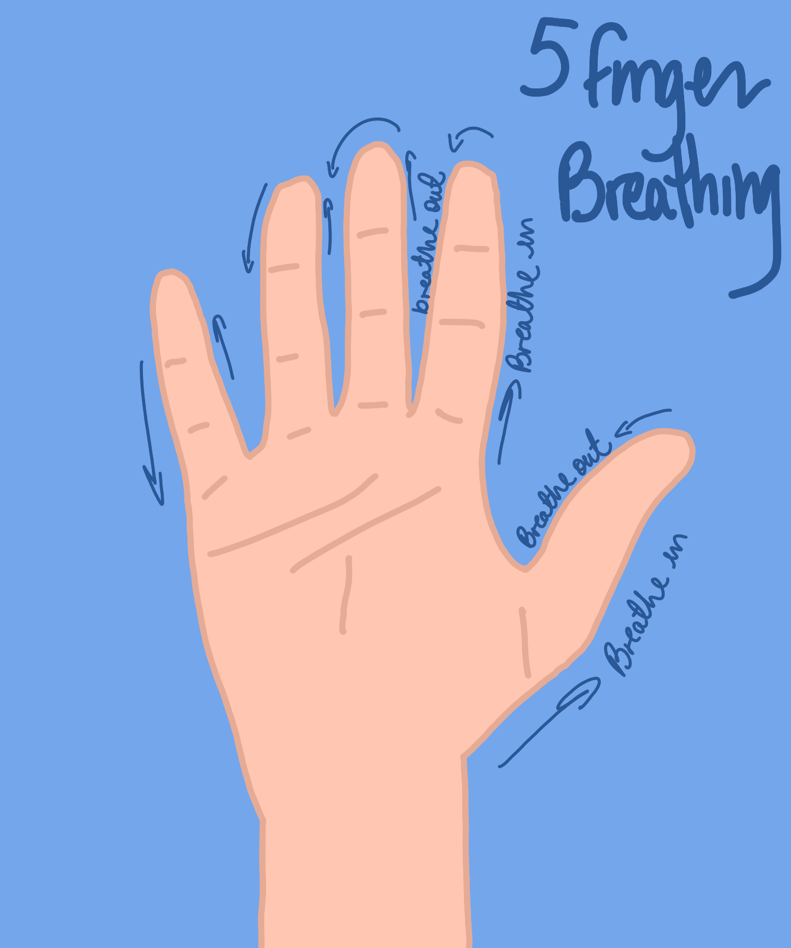*This article has been corrected since published.
Over the past decade, highly-caffeinated energy drinks have become a popular choice for teenagers and adults alike. These drinks, including Redbull, Monster and Rockstarr, have been marketed towards younger demographics. Although some consumers have accepted these products as a part of teenage culture, others believe that the drinks have negative effects on the human body.
Biology teacher and girls JV soccer coach Susan Fazio raises her concerns about reasons for one’s energy drink use.
“[The drinks are] not the body’s best source of fuel,” she said. “Carbohydrates are going to be the better source of fuel, and other fats that you’ve taken in. If you are fueling your body normally, [with] carbohydrates, fats and proteins, then you shouldn’t need that extra boost from caffeine.”
She explained that as with most caffeine products, users will experience an energy boost for a short period of time before “crashing.” Users will then need a substantially greater amount of the product to maintain this increased level of energy.
“[The drinks are] caffeine-based [and] caffeine-driven,” said Fazio. “I don’t believe there are any extra . . . proteins or carbohydrates or anything like that nutritionally based. It’s not vitamin based, where students might need that. But never should a drink replace what individuals should be getting through food.”
Not only do energy drinks have caffeine, but they also contain high amounts of sugar.
“Caffeine itself is a very bitter substance, but for consumers to drink it… it has to taste good,” said school community health nurse Ki-Nam Kim. “So, what [companies] add on is more sugar.”
Cross-country coach Tom Martin agrees, adding that energy drink consumption is a personal decision one must make. He raises concerns about athletes’ use of these caffeinated products.
“I think [that] they have no place in sports,” he said. “Our guys that train and the girls that train in the higher level for our running programs, especially in the distances, they realize the negative effects of caffeine.”
Martin explained that these sorts of drinks are diuretics, meaning they raise the level of urination, and as a result, cause dehydration, which can slow down athletes.
In addition, it is vital to acknowledge any preexisting conditions that could potentially put one’s health at risk. A few WJ staff members, including Kim, said that energy drinks have the possibility of increased consequences for those with underlying health conditions.
“[When consuming energy drinks,] the heartbeat goes up, and normal people will come down once the caffeine is out of their system,” said Kim. “Some people may not know they have a heart issue [and] they may even have a stroke… from the raising of blood pressure. It may even cause the bursting of blood vessels in the brain.”
However, since energy drinks have only become popular in recent years, few studies on their effects have been conducted. According to Navy Commander Dr. Sara Saltzstein*, a board certified Family/Sports Medicine physician overseeing health care at the Naval Academy in Annapolis, people commonly believe that through studies, energy drinks have been proven safe and effective. However, this is not the case.
“People should know that energy drinks have not been studied, and there is no evidence to document they are safe or beneficial,” said Saltzstein, in an e-mail statement. “Yet, there are many reports of their unsafe potential.”
Additionally, Saltzstein said that the stimulant load can exacerbate other health issues.
“Too much consumption can trigger heart, anxiety and kidney problems,” said Saltzstein.
She does not recommend use of these drinks, though if the user feels that they must use them, moderation is key.
Some WJ teachers and coaches do not think that energy drinks need to be eliminated completely. Wrestling coach Tom Wheeler expressed his concern regarding how marketing often portrays energy drinks as a product that can be used constantly, but acknowledged that there may occasionally be a time and place in which their use is appropriate.
“I think they’re marketed as something that can be used every day. . . and I’m not okay with that,” said Wheeler. “I think it’s okay to use it maybe once or twice every couple of months for a specific wake-up purpose, but don’t rely on it totally.”
A main point that teachers, coaches and professionals stressed was the importance of reading the label before consuming an energy drink.
“[Energy drinks] are based on different things,” said Wheeler. “You have to read the label, understand what’s in it, and if you don’t know what’s in it, look it up. Make sure you know exactly what that product is, what it does, what warnings or issues that other people might have with it, what research that’s been done.”
Despite agreeing on many aspects, a controversial topic was the issue of whether or not energy drinks should be federally regulated. Many of the teachers, coaches and professionals interviewed felt that students should be given some freedom to make their own decisions. However, they disagreed over whether or not the government should be involved in laws setting age restrictions or requirements for energy drink use or purchase.
Saltzstein and Kim believe that the government should place regulations on these caffeinated products, due to the lack of data to support the safety of energy drink use.
Alternatively, Martin felt that it should not be the government or school’s duty to regulate students. He said that parents or guardians should take more responsibility in educating their children about a healthy lifestyle.
“It’s not something that you legislate away,” he said. “I know they try to legislate away too many things rather than families taking away responsibilities.”
*Saltzstein’s statements reflect her personal opinions, not those of the United States Navy, Naval Academy or Navy Medicine













